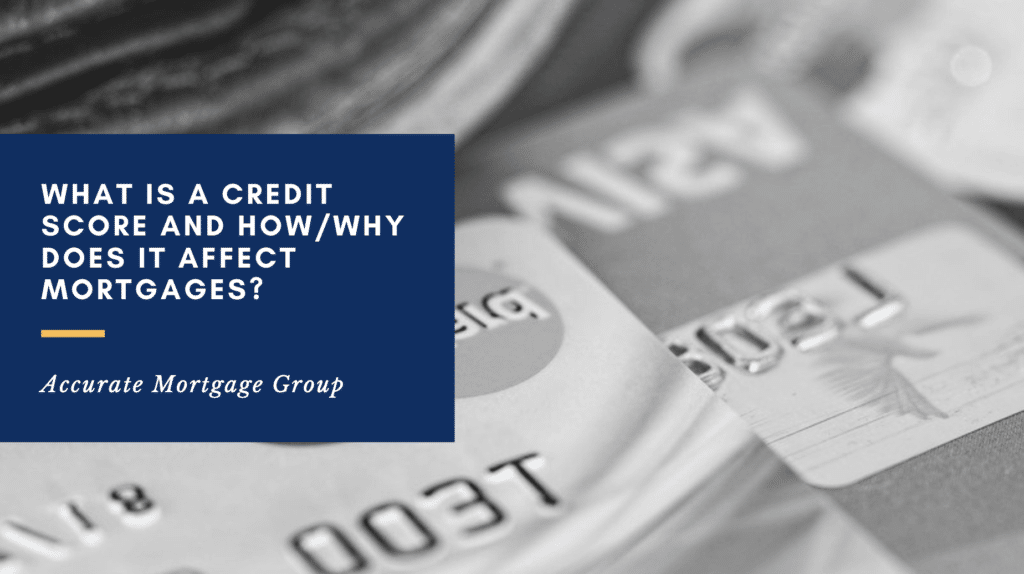
03 Oct What Is a Credit Score and How/Why Does It Affect Mortgages?

As a Murfreesboro mortgage lender, it is part of our job here at Accurate Mortgage Group to educate people about their credit score and how this score can affect their ability to get a mortgage. Credit scores affect everything from the interest rate and the mortgage amount you qualify for, to how much of a down payment you’ll need to make and whether or not you will need to pay mortgage insurance. This doesn’t mean that you can’t get a mortgage if your credit score isn’t at its best. You may end up paying a bit more, though. This is why it’s important to understand what credit scores are and how they impact getting a loan.
What Is a Credit Score
Credit scores are what lenders use to judge how much of a financial risk you are. In the United States, credit bureaus use a FICO scoring system that ranges between 300 to 850. 700 is considered to be a good score and, of course, the higher the score the better when it comes to qualifying for a mortgage. Before you decide to apply for a mortgage, we strongly advise you to review your credit report to make sure there are no errors that are negatively impacting your score.
How Credit Scores Affect Mortgages
Risk-Based Pricing
Lenders use risk-based pricing to determine how much they are willing to lend you. If you have a low credit score, it means you are a higher risk, which will make the cost of getting a mortgage higher. A difference of 75 points on your credit score can add .05% to the rate of your mortgage. Higher scores mean you will get a better interest rate. For example purposes only, let’s say one client has a score of 750 and another has a score of 625. Both are going for a mortgage loan for $200,000 for a 30-year term. The client with the 750 credit score gets an interest rate of 3.25% and pays just over $900 a month in repayments. However, the client with the 625 credit score gets an interest rate of 4.125% and ends up paying close to $970 per month. This client will end up paying $70 more a month and about $20,500 more over the loan’s term.
Loan-to-Value Ratio
The appraisal value amount that you will be allowed to borrow is determined by a loan-to-value ratio. A good credit score can qualify you for 95% financing of the home’s value, whereas a lower score may only get you 80%.
Underwriting Flexibility
When you have a good credit score and a strong credit history, lenders tend to be a bit more flexible if you are weaker in certain areas, such as with your cash reserves, income and your down payment amount. With a poor credit history and score, lenders tend to be stricter.
Private Mortgage Insurance
When you are making a down-payment of less than 20% of the home’s value, a lot of lenders will require you to pay PMI (private mortgage insurance) to protect themselves should you default on payments. The amount they will require is based on your credit score and credit history. Becoming more familiar with your credit score and history can make a world of difference when it comes time to apply for your mortgage. Whether you need some advice on your credit or want to see what mortgage options are available to you, give the Murfreesboro mortgage lender team at Accurate Mortgage Group a call today!
